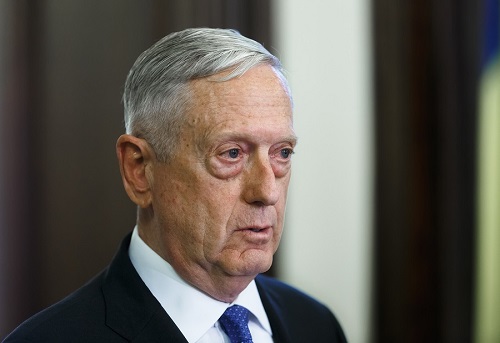Issue Briefs

America about to leave Afghanistan?
Paolo von Schirach
September 12, 2018
US Secretary of Defense James Mattis and Chairman of the Joint Chiefs General Joseph Dunford recently made an unexpected visit to Kabul, Afghanistan in order to meet with Government officials.
Negotiations with the Taliban?
What is surprising is that in the course of this visit Secretary Mattis publicly indicated that now more than ever before there seems to be a concrete possibility to engage the Taliban in serious peace negotiations.
Really? This is a good moment? And based on what? Based on the fact that our side is losing, or at the very least manifestly incapable of winning? I assume that Secretary Mattis is aware of the fact that the Afghan government, after years and years of U.S. funded training of its military and police forces, is receiving huge body blows –practically on a daily basis– from a stronger and clearly emboldened Taliban. Surely Mattis can see that the Taliban is now capable of attacking almost anywhere in the country, very often targeting government facilities within highly protected areas in Kabul itself.
In simple language, the Afghan Government is not only manifestly incapable of beating a now stronger Taliban insurgency, it is also suffering a series of humiliating (and demoralizing) setbacks.
Translation: while the fighting continues, and no decisive “battle” has taken place, victory is nowhere in sight for the Afghan Government we have been supporting for over 15 years, while the other side has redoubled it efforts, giving no sign whatsoever that it is losing its motivation to fight –for as long as it takes.
If our goal is the eventual stabilization of the country, any US security expert understands that this is not happening any time soon. Simply by continuing its campaign of almost daily attacks, the Taliban are making it very difficult, if not impossible, for the Afghan Government to stay in control and run a semi-destroyed country that is still in desperate need of basic services, capital investments, jobs and economic development.
Why negotiations when our side is losing?
And yet, while in Kabul, the most senior US Defense Department official argues that this most perilous predicament is a really good moment to negotiate with the Taliban. This makes no sense, if our objective is victory.
Indeed, if we want to negotiate good terms for our side, then we open a dialogue with the enemy when we are winning, not when we can hardly hold on to our positions, while under a barrage of almost daily brazen attacks.
This being the case, and since what I just articulated is pretty obvious to all, there is only one explanation I can think of for this sudden optimism about negotiations with the Taliban expressed by Secretary Mattis.
The war is lost
America has finally realized that the war in Afghanistan has been a long, horribly expensive, and ultimately hopeless endeavor. The “Vietnamization strategy” for Afghanistan whereby American forces, while stopping ground combat operations, would still provide critical assistance to the war effort through the training of Afghan forces and by providing significant air support, eventually leading to victory, turned out to be a naive fantasy.
After 17 years it is time to say it: “This is not working”. I repeat: “This is not working”.
Cut your losses
This being the case, once you have digested this simple (if unpleasant) reality, the time comes when you want to get out of a hopeless situation. And therefore you publicly say that this is a good moment “to negotiate”, knowing full well that the other side will interpret this for what it is: a virtual capitulation. Taliban Internal Memo: “The Americans are finally leaving. We won”.
Good bye
Well, if you sit in the Afghan Government, you cannot avoid reading the proverbial writing on the wall: “Dear Afghan friends, what we really mean by saying that this is the right time for engaging in negotiations with the Taliban is that soon enough you will be on your own in this fight. We are done here. Belatedly, we decided to cut our losses. Good luck to you and good-bye”.
 |
Paolo von Schirach is the President of the Global Policy Institute and a Professor of International Relations and Economics at BAU International University. He is also the founder and editor of the Schirach Report |
The views and opinions expressed in this issue brief are those of the author.